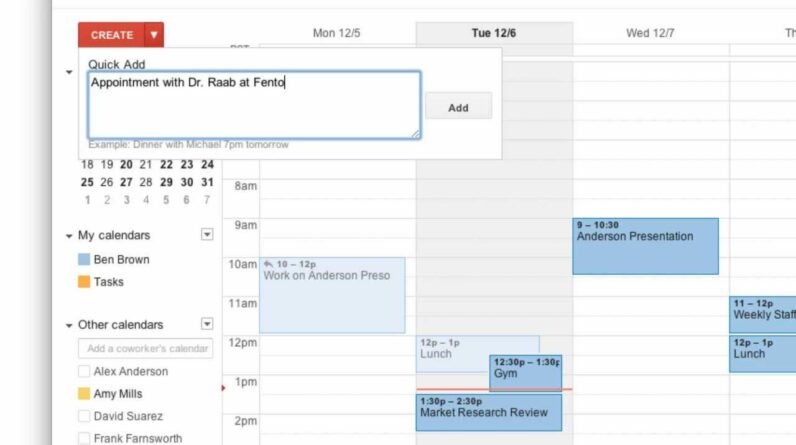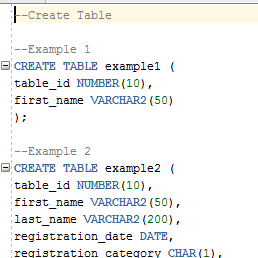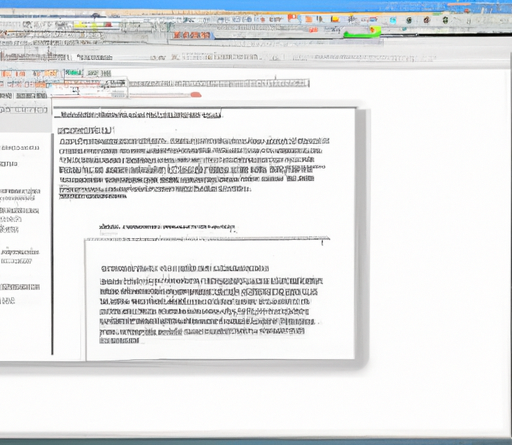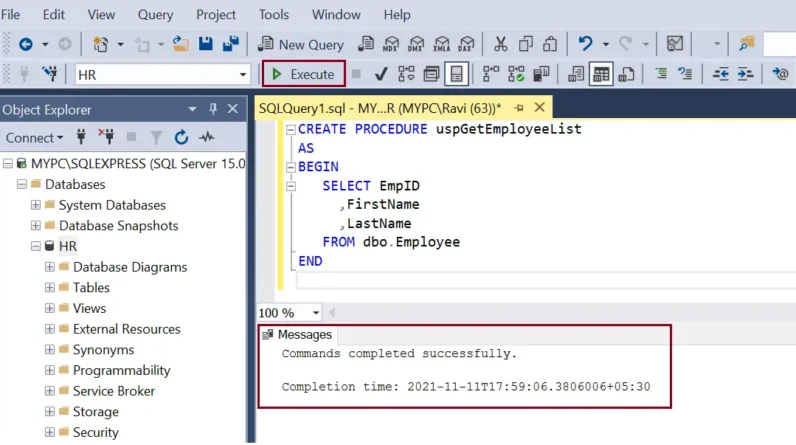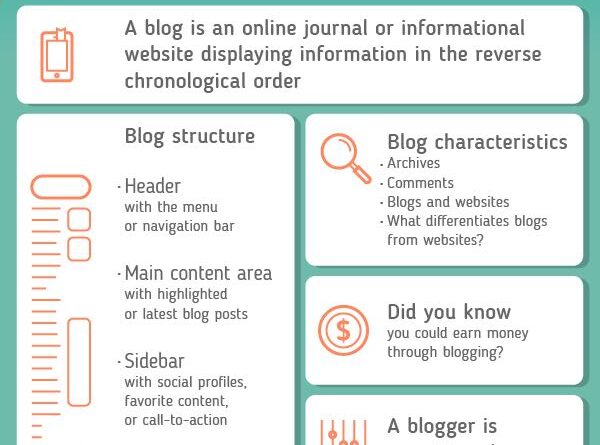
Have you ever wondered what exactly a blog is and how you can create one? Well, you’re in the right place! In this article, we’ll explore the fascinating world of blogging and provide you with all the information you need to get started. So, let’s dive in and find out what a blog is all about and how you can become a successful blogger!
A blog, short for weblog, is essentially an online platform where individuals or organizations can share their thoughts, ideas, experiences, or even promote products and services. It’s like having your own personal diary or journal, but instead of keeping it private, you’re sharing it with the whole world! Blogs typically consist of a reverse chronological order of entries or posts, allowing readers to easily navigate through the content. In this article, we’ll delve deeper into the different types of blogs, the benefits of blogging, and guide you through the process of creating your very own blog. So, if you’re curious to explore the exciting world of blogging, read on and discover how you can join this online community and make your own mark!

Table of Contents
What is a Blog?
Understanding the Concept of Blogging
A blog is a personal or professional website where individuals or organizations share their thoughts, ideas, experiences, and expertise. It is a platform that allows individuals to express themselves, connect with others, and establish an online presence. Blogging has evolved over the years from being a mere online diary to a powerful tool for communication, knowledge sharing, and business promotion.
Features and Characteristics of a Blog
A blog typically consists of posts or articles that are displayed in reverse chronological order, with the newest post appearing first. It allows readers to comment on the posts and engage in discussions. Here are some key features and characteristics of a blog:
-
Posts: A blog is made up of individual posts or articles that cover specific topics. Each post is like a diary entry, presenting the author’s thoughts and ideas.
-
Archives: Blogs maintain an archive of all the posts, making it easy for readers to access older content.
-
Comments: One of the defining features of a blog is the ability for readers to leave comments on posts. This fosters interaction and encourages discussions.
-
Categories and Tags: Blogs organize their content using categories and tags, making it easier for readers to navigate and find relevant posts.
-
RSS Feeds: Blogs provide RSS feeds, allowing readers to subscribe and receive updates whenever a new post is published.
-
Multiple Authors: Some blogs have multiple authors contributing posts on various topics, providing a diverse range of perspectives.
-
Customization: Bloggers have the flexibility to customize the design, layout, and overall appearance of their blogs to reflect their personal or brand identity.
Types of Blogs
Blogs come in various forms, serving different purposes and catering to various audiences. Here are some common types of blogs:
Personal Blogs
Personal blogs are a platform for individuals to share their thoughts, experiences, and personal stories. They serve as a digital diary, allowing people to express themselves and connect with others who share similar interests or experiences.
Business Blogs
Business blogs are created by companies to showcase their products or services, establish thought leadership, and engage with their customers. These blogs often provide valuable industry insights, tips, and updates related to the company’s niche.
Niche Blogs
Niche blogs focus on a specific topic or subject, catering to a specific audience. These blogs delve deep into a particular area of interest, providing specialized and in-depth content for enthusiasts.
Media Blogs
Media blogs revolve around photography, videography, or any form of visual content. They showcase high-quality images, videos, and creative works, allowing individuals to share their portfolio or passion for visual arts.
Professional Blogs
Professional blogs are created by individuals in specific fields such as healthcare, finance, or law, to share their expertise, insights, and advice. These blogs aim to educate and inform readers about industry trends and best practices.
Benefits of Blogging
Sharing Knowledge and Expertise
One of the great advantages of blogging is the opportunity to share your knowledge and expertise with the world. It allows you to establish yourself as an authority in your field and build a reputation for yourself.
Building an Online Presence
Blogging helps you create an online presence and establish a personal or professional brand. It allows you to showcase your skills, interests, and achievements, making it easier for others to find and connect with you.
Engaging with a Community
Blogging opens doors to engage with a community of like-minded individuals. It provides a platform for meaningful discussions, feedback, and sharing of ideas, fostering a sense of belonging and support.
Monetization Opportunities
Blogs can be monetized through various avenues such as advertising, sponsored content, affiliate marketing, selling products or services, or offering consultations. It provides an opportunity to generate income from your passion and expertise.
Improving Writing Skills
Maintaining a blog requires consistent writing, which helps improve your writing skills over time. It allows you to experiment with different writing styles, formats, and topics, strengthening your communication abilities.
Creating a Blog
Choosing a Blogging Platform
Before you start creating a blog, you need to choose a blogging platform that suits your needs and preferences. Popular blogging platforms include WordPress, Blogger, and Wix. Each platform offers different features and customization options, so it’s essential to research and select the one that aligns with your goals.
Selecting a Domain Name and Web Hosting
To make your blog accessible on the internet, you need to select a domain name (the web address of your blog) and a web hosting provider. Choose a domain name that reflects your blog’s content or your personal brand. Web hosting providers, such as Bluehost or SiteGround, offer server space where your blog’s files will be stored.
Designing and Customizing the Blog
Once you have chosen a platform, domain name, and web hosting, it’s time to design and customize your blog. Select a visually appealing theme or template that suits your blog’s purpose and customize it to match your brand’s colors, fonts, and style.
Writing and Publishing Content
The heart of a blog is its content. Start by planning your content strategy and identifying your target audience. Write engaging and valuable blog posts that cater to the interests and needs of your readers. Publish your posts regularly to keep your blog active and offer fresh content for your audience.
Promoting and Growing the Blog
Creating a blog is just the first step; the real challenge lies in promoting and growing your audience. Utilize various marketing techniques such as social media promotion, search engine optimization (SEO), collaborating with other bloggers, and guest posting to reach a wider audience and drive traffic to your blog.
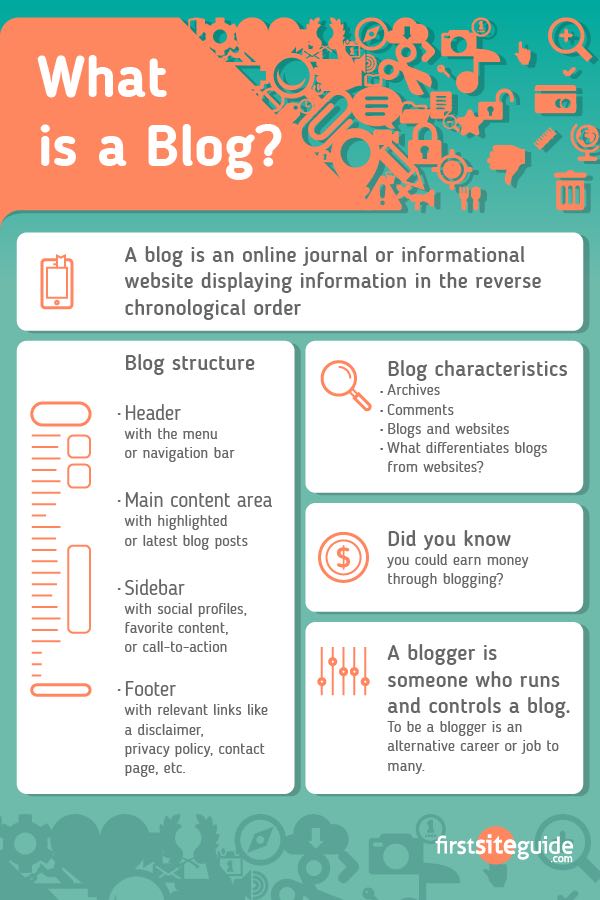
Content Strategies for Blogs
Identifying Target Audience and Purpose
Before creating content, it’s crucial to identify your target audience and understand their needs, interests, and pain points. Align your content with your audience’s preferences and provide solutions or valuable information that addresses their concerns.
Creating Engaging and Valuable Content
The key to a successful blog is to create engaging and valuable content that captivates your readers’ attention. Make your posts informative, entertaining, and easy to read. Use storytelling techniques, share personal experiences, and provide practical tips to keep your audience hooked.
Visual and Multimedia Elements
Incorporating visual and multimedia elements into your blog posts can enhance the reader’s experience and make your content more memorable. Add relevant images, infographics, videos, or podcasts to break up the text and make it visually appealing.
Search Engine Optimization
To increase the visibility of your blog in search engine results, it’s essential to optimize your content for search engines. Conduct keyword research to identify relevant keywords and incorporate them naturally into your blog posts. Use meta-tags, descriptive headings, and proper URL structures to make your blog SEO-friendly.
Regularly Updating and Maintaining Content
Consistency is key when it comes to blogging. Regularly update your blog with fresh content to keep your audience engaged and coming back for more. Update older posts with new information, fix broken links, and make sure all your content is up-to-date for optimal user experience.
Promoting a Blog
Utilizing Social Media
Social media platforms like Facebook, Twitter, Instagram, and LinkedIn are powerful tools for promoting your blog. Share your blog posts on these platforms, engage with your followers, and participate in relevant communities to expand your reach.
Building an Email Subscriber List
Building an email subscriber list allows you to reach your audience directly and build a loyal readership. Offer a freebie or exclusive content in exchange for email addresses, and send regular newsletters or updates to keep your subscribers engaged.
Collaborating with Other Bloggers
Collaborating with other bloggers in your niche can help you reach a wider audience and tap into their followers. Guest post on other blogs or invite guest bloggers to contribute to your blog, fostering cross-promotion and networking.
Guest Blogging
Guest blogging involves writing and publishing posts on other blogs. It helps you reach a new audience and drive traffic back to your own blog. Look for reputable blogs in your niche that accept guest posts and pitch them with unique and valuable content ideas.
Implementing SEO Strategies
Implementing search engine optimization strategies can significantly increase your blog’s visibility in search engine results. Conduct keyword research, optimize meta-tags and headings, build backlinks from reputable websites, and focus on creating high-quality content to improve your search engine rankings.
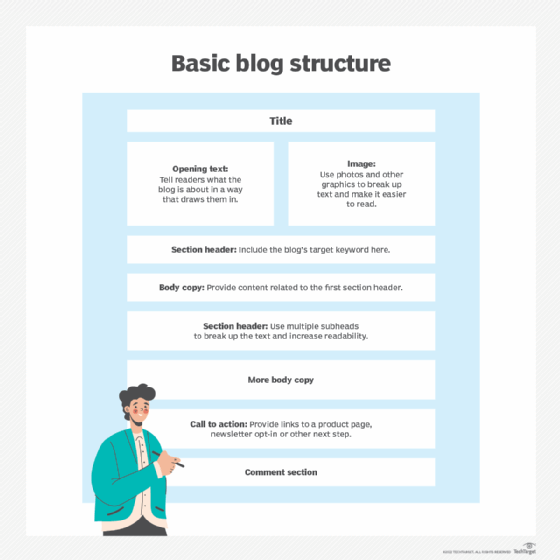
Engaging with Readers
Encouraging Comments and Feedback
Encourage your readers to leave comments on your blog posts by inviting them to share their thoughts, opinions, or questions. Respond to their comments promptly and facilitate discussions to build a sense of community and encourage reader engagement.
Responding to Reader Inquiries
Take the time to respond to reader inquiries, whether it’s through comments, emails, or social media messages. Show your readers that you value their input and are willing to assist them with their questions or concerns.
Creating a Sense of Community
Building a sense of community on your blog involves fostering a welcoming and inclusive environment. Encourage readers to interact with each other, participate in discussions, and create a space where people feel comfortable sharing their opinions and experiences.
Organizing Contests and Giveaways
Organizing contests, giveaways, or special promotions can create excitement and boost reader engagement. Offer incentives such as freebies, discounts, or exclusive content to encourage readers to participate and share your blog with others.
Conducting Surveys or Polls
Conducting surveys or polls on your blog can provide valuable insights into your readers’ preferences, interests, and opinions. Use this information to tailor your content and offerings to better serve your audience.
Dealing with Challenges
Finding Consistent Inspiration
Maintaining a blog requires finding consistent inspiration and ideas for new content. Stay updated with industry trends, follow thought leaders in your niche, and engage in discussions to generate fresh ideas and keep your content relevant.
Managing Time and Consistency
Blogging is a commitment that requires consistent effort and time management. Set a blogging schedule and allocate dedicated time for creating, editing, and publishing content. Use productivity tools and prioritize tasks to maintain consistency.
Dealing with Negative Feedback
As your blog grows, you may encounter negative feedback or criticism. It’s essential to handle it constructively and professionally. Address the concerns, respond with empathy, and use feedback as an opportunity for growth and improvement.
Navigating Copyright and Privacy Issues
Respect copyright laws and privacy regulations when creating and sharing content on your blog. Use proper attribution for images, quotes, or references. Ensure you have permission to use copyrighted content and respect your readers’ privacy by following data protection guidelines.
Staying Motivated and Overcoming Writer’s Block
Blogging requires consistent motivation and creativity. Surround yourself with like-minded individuals, join blogging communities, and seek support and inspiration from fellow bloggers. Overcome writer’s block by taking breaks, engaging in activities that spark creativity, and exploring different writing prompts.
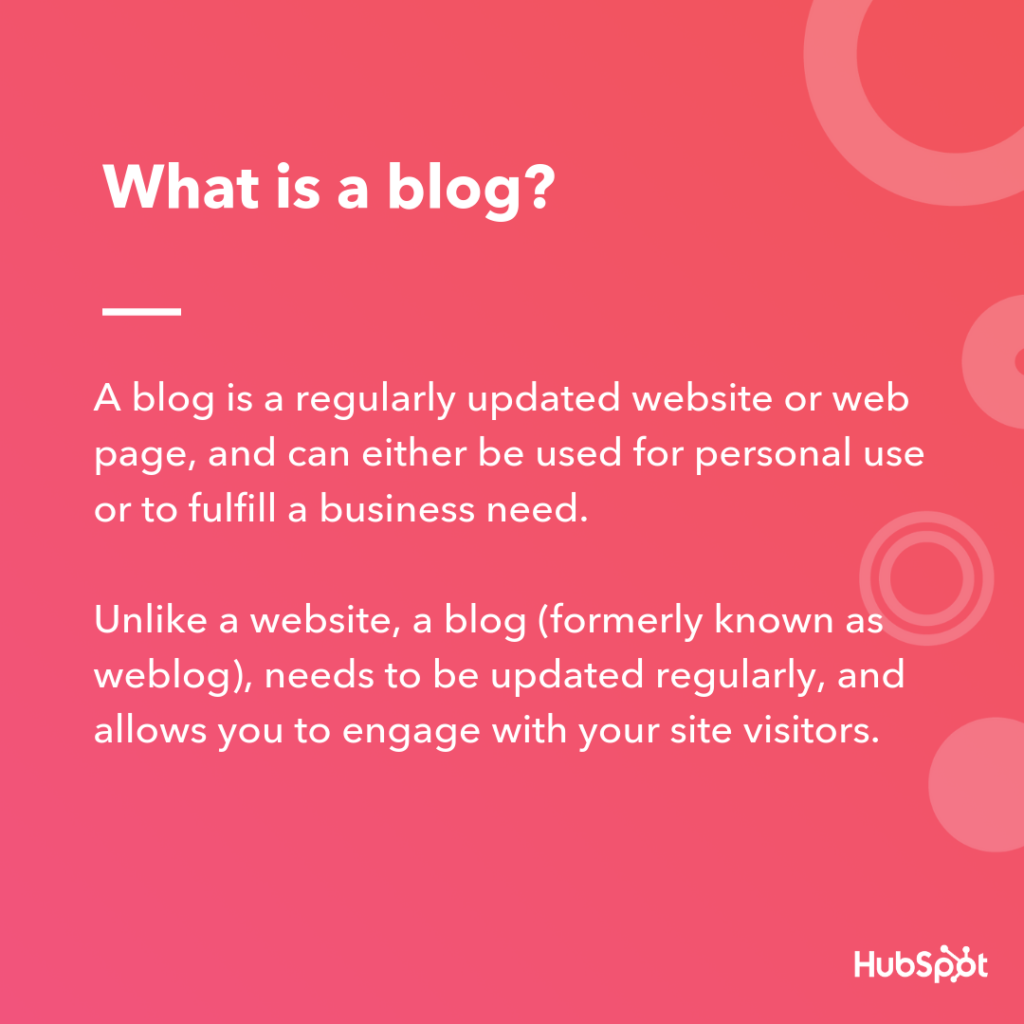
Monetizing a Blog
Advertising and Sponsored Content
Displaying advertisements or partnering with brands for sponsored content can generate revenue for your blog. Join advertising networks or negotiate with relevant brands to display their ads or create sponsored posts.
Affiliate Marketing
Affiliate marketing involves promoting products or services on your blog and earning a commission for every sale or lead generated through your referral. Join affiliate networks and choose products or services aligned with your blog’s niche and your audience’s interests.
Selling Digital or Physical Products
If you have digital products like e-books, online courses, or templates, you can sell them on your blog. Alternatively, you can sell physical products related to your blog’s niche by partnering with e-commerce platforms or creating your online store.
Offering Services or Consulting
If you have expertise in a specific field, you can offer services or consulting related to your niche. Highlight your skills and knowledge on your blog and provide details on the services you offer. Promote your consulting services through your blog and social media channels.
Creating Memberships or Subscriptions
Creating a premium membership area or offering exclusive content through subscriptions can be a lucrative way to monetize your blog. Provide additional value to paying members, such as access to exclusive articles, videos, or community forums.
Conclusion
Blogging is a versatile and powerful platform that allows individuals and businesses to share their thoughts, expertise, and experiences with the world. Whether you want to build an online presence, engage with a community, or monetize your passion, blogging opens up endless possibilities. By understanding the concept of blogging, creating valuable content, promoting your blog, and engaging with your readers, you can create a successful blog and make a mark in the online world. Start your blogging journey today and unleash your creativity and expertise for the world to see.




